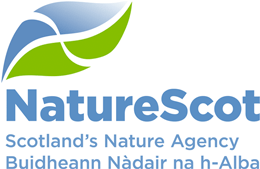20 November, 2020
Chough conservation effective but more action needed

Conservation measures to help save the threatened red-billed chough have been effective in preventing further large population declines.
A new report published by NatureScot found that supplementary feeding and parasite treatment aimed at preventing chough extinction in Scotland have been successful.
NatureScot has now committed to funding the measures for a further two years to support the population, while exploring longer-term recovery options.
Red-billed chough in Scotland have declined and are currently restricted to the islands of Islay and Colonsay, where there were fewer than 50 pairs in 2018.
The birds are threatened simultaneously by lack of food (affecting first year survival), parasites and low genetic diversity.
NatureScot funded an emergency supplementary feeding programme that began in 2010 at multiple sites on Islay with treatment of parasites from 2014, alongside monitoring of the population.
The report found that supplementary feeding has successfully increased key demographic rates, including first year survival, and birds treated for parasites recovered after 2-3 days, concluding that the programme was an effective short-term conservation action.
However, it adds that in the longer-term, further measures will be needed to stabilise the species, including habitat improvements and reinforcing the population with birds from other UK populations to reduce inbreeding.
The detailed analysis in the report has been possible thanks to the tireless and committed long-term monitoring of the population by the Scottish Chough Study Group, RSPB Scotland, Aberdeen and Glasgow Universities and SRUC, which began in 1983.
NatureScot Ornithologist Dr Jessica Shaw said: “This robust report is the culmination of years of practical and scientific work to prevent the loss of chough from Scotland, with painstaking work by committed individuals on the islands.
“It demonstrates that these dedicated efforts have been successful in the short-term, and we’re pleased to confirm that NatureScot will continue to fund and support this chough conservation work over the next two years.
“The report makes several recommendations for the longer-term, and we will now explore options for the future, in consultation with partners in Scottish Government and the Scottish Chough Forum.”
Professor Davy McCracken, of the Scottish Chough Study Group, said: “This is an excellent example of combining collaborative research and cutting edge modelling to address a practical nature conservation issue.
“We look forward to contributing to further key work, especially to improve feeding habitats for chough. This should focus on key grassland fields where adults take their young to feed after fledging, and on those sand dune systems of crucial importance to chough for the early years of their lives.”
ENDS
Contact information
- Name
- NatureScot Media
- Telephone
- 0131 316 2655
- media@nature.scot
Notes to editors
The full report is available here: https://www.nature.scot/naturescot-research-report-1152-conservation-strategy-red-billed-choughs-scotland-assessment-impact
NatureScot is Scotland's nature agency. We work to enhance our natural environment in Scotland and inspire everyone to care more about it. Our priority is a nature-rich future for Scotland and an effective response to the climate emergency. For more information, visit our website at www.nature.scot or follow us on X at https://x.com/NatureScot
’S e NatureScot buidheann nàdair na h-Alba. Bidh sinn a’ neartachadh àrainneachd na h-Alba agus a’ brosnachadh dhaoine gu barrachd suim a chur ann an nàdar. Tha e mar phrìomhachas againn gum bi nàdar na h-Alba beairteach agus gun dèilig sinn gu h-èifeachdach le èiginn na gnàth-shìde. Tha an tuilleadh fiosrachaidh aig www.nature.scot no air X aig https://x.com/NatureScot

